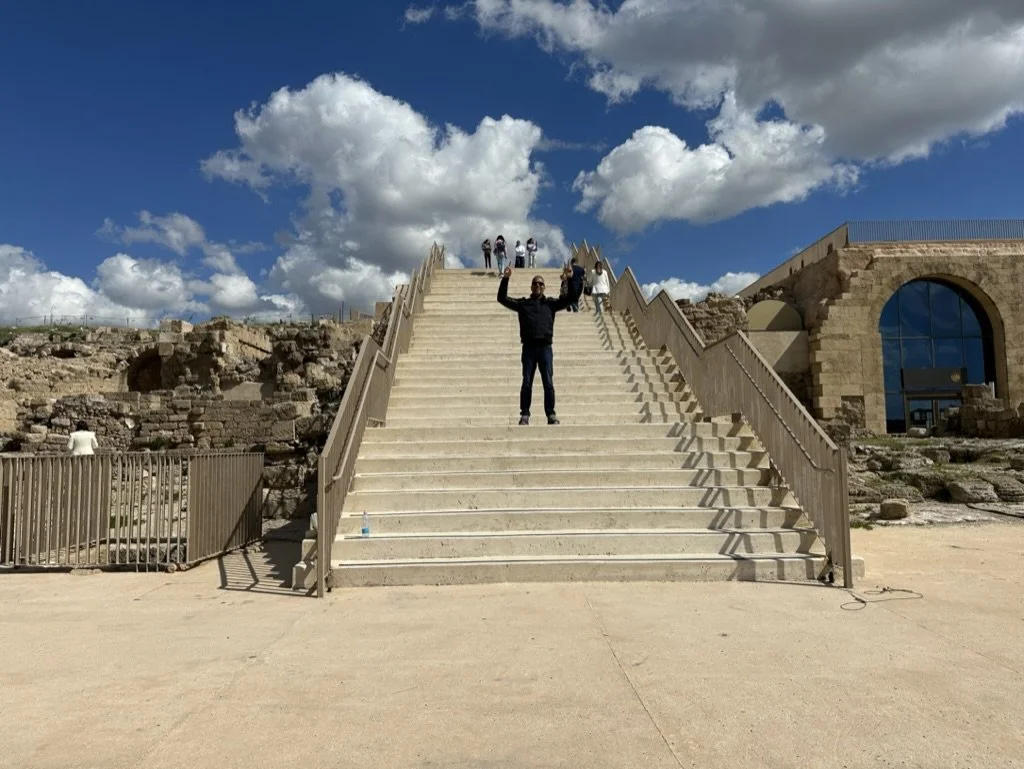What I Am Reading:
Octopus time
“We humans are forward-facing, gravity-bound plodders. Can the liquid motion of the octopus radicalise our ideas about time?”
For when someone says “I’ve seen this before, it didn’t work”
“If you’re a founder you’ve probably heard someone say “oh, I’ve seen this idea before - it didn’t work” or “isn’t this just like that other thing that person/company X tried?”
As a founder, I heard this dozens of times. It’s likely to come from investors, but you hear it from other founders, potential employees, advisors, customers, even family members. Like it or not, pattern matching is strong.”
More …
For every successful business I’ve started, or investment I’ve made, there have been multiple failures: businesses that never took off, investments that went to zero, and times when I was super gung-ho about something, only to have it end up in my Bad Idea Hall of Fame. Want to know more? Let’s take an honest trip down memory lane.
The Kickoff
The first one that comes to mind takes me back to my college years, when I was about 20. I was still in school at the time, and really into kickboxing, which was just becoming popular, with studios popping up everywhere. One day, I had a lightbulb moment for how I could monetize the kickboxing trend.
I bought the domain name Kickboxing.net with the plan of building an online directory of kickboxing studios. To fill out the front end of the site, I put up a bunch of content around the sport, but that was the easy part. The more labor-intensive work was creating the software that would pull information from a database about different locations. During my limited free time, I programmed the whole thing, spending probably about four months on it.
More …
hat I Am Reading:
Planning Ahead Is the Key to Living With More Spontaneity
“It may seem counterintuitive, but spontaneity often can’t happen without a bit of advanced planning”
23 semi-controversial predictions for 2023
The Munger Operating System: How to Live a Life That Really Works
“To get what you want, deserve what you want. Trust, success, and admiration are earned.”
More…
A lot of people ask me why I wrote my first business book, NightLife Lessons. The answer is simple: it was mostly a bucket list item for me, and not about making money. Sure, I wanted to help myself by looking back and writing down what I’ve learned over the years, in the hopes of helping other startup entrepreneurs on their journeys. But for the most part, I just wanted to see if I could write a book…and then hold it in my hands. Below, I'll share a bit about the process of writing my book and what it was like for me.
Telling Stories
I’ve been funding and advising startup founders and entrepreneurs for almost a decade now. As part of that role, I often find myself telling stories from my own experiences building startups, to help founders not only deal with their current struggles, but also avoid pitfalls that might lie ahead of them.
More …
What I Am Reading
Same As It Ever Was
This is a few short stories about things that never change in a world that never stops changing.
Four Thousand Weeks: Time Management for Mortals
“Drawing on the insights of both ancient and contemporary philosophers, psychologists, and spiritual teachers, Oliver Burkeman delivers an entertaining, humorous, practical, and ultimately profound guide to time and time management. Rejecting the futile modern fixation on “getting everything done,” Four Thousand Weeks introduces readers to tools for constructing a meaningful life by embracing finitude, showing how many of the unhelpful ways we’ve come to think about time aren’t inescapable, unchanging truths, but choices we’ve made as individuals and as a society—and that we could do things differently.”
More …
What I Am Reading
Why Start-ups Fail
Most start-ups don’t succeed: More than two-thirds of them never deliver a positive return to investors. But why do so many end disappointingly? That question hit me with full force several years ago when I realized I couldn’t answer it.
The Tail End
What I’ve been thinking about is a really important part of life that, unlike all of these examples, isn’t spread out evenly through time—something whose [already done / still to come] ratio doesn’t at all align with how far I am through life: Relationships.
Curiosity Is the Secret to a Happy Life
What exactly does it mean to be curious? “If you go by the typical dictionary definition, curiosity is simply a desire to seek out new knowledge or experiences,” Kashdan says. While this definition is a useful starting point, he says curiosity also involves a willingness to engage with complex, unfamiliar, and challenging concepts or endeavors.
More…
When I started middle school in sixth grade, I mostly loved Doritos, Nintendo, baseball, and playing Dungeons and Dragons all the time. But the craze of remote control cars was headed my way, and looking back, I can see how much I gained from being immersed in that world.
Serious Fun
When you hear “remote control cars” you might be thinking of the dinky, pre-built kind that you buy in a toy store: the kind that go less than a mile per hour and have a range of approximately one living room floor. They’re fun for kids, but not what my friends and I were growing obsessed with.
Instead, we were getting into hobby-grade RC cars, the kind that come disassembled with hundreds of parts and take anywhere from a week to a month to build (and not to mention, come with a pretty hefty price tag—anywhere from $100 to $200, back in the early 90’s). We got a real adrenaline rush from racing those cars, at speeds of over fifteen miles an hour, in parks, backyards, and empty parking lots.
More …
What makes an investment promising, from the perspective of a venture capitalist? As any VC will tell you, it's not so much the idea being invested in; rather, it’s the team behind the idea, and most specifically, the founder.
A Smart Bet
VC investment is very much like gambling. Even having the best team and idea does not guarantee any level of success. That’s why many VCs spread their bets across a number of different companies; the way the math works out, you only need one outsized win to more than make up for all of your losses (or mediocre wins). But how do you optimize your chances of getting that outsized win? How do you know what to look for in a startup?
Well, there are many immeasurable factors that go into the success of a company, and to be honest, luck is probably one of the most important. Other factors, however, are much more concrete. And over the years, I’ve found that finding businesses with great founders significantly increases my odds of success.
What I Am Reading:
The Ultimate Guide to Liars and Lying: Everyone Falls Into These 4 Types
“There are various ways of classifying lies: by their consequences, by the importance of their subject matters, by the speakers’ motives, and by the nature or context of the utterance.
Perhaps the most useful way to classify lies is by to the people who tell them. Understanding lies and liars can help us avoid getting duped as well as protect us from drifting into dishonesty ourselves.”
Corn Mazes and Mental Models
“We habitually view the world through a series of mental models that shape our understanding of our circumstances, our relationships and ourselves. [2] And while these mental models are essential tools in allowing us to navigate through life, they can easily lead us astray. Philosopher Alford Korzybski said "A map is not the territory it represents," and a mental model is not the reality it seeks to depict. [3] But we can easily mistake our mental models for reality and apply them inappropriately.”
'Smallest reptile on earth' discovered in Madagascar
Scientists believe they may have discovered the smallest reptile on earth - a chameleon subspecies that is the size of a seed.
More…
In 2000 I founded JoonBug.com with the idea of bringing together the offline events world into the online digital world. In the pre Facebook, Eventbrite, and smartphone camera era, we were the first ones to go around the NYC nightlife scene taking photos every night of party goers living their best life at all the hottest venues and events. If you went out in NYC then chances are you were “bitten by the JoonBug”. From 2000-2009 before the advent of modern social media, JoonBug was the ultimate online resource for party photos and nightlife information on the web. Unfortunately many of those hundreds of thousands of photos are lost somewhere on a hard drive that I misplaced during a move. But luckily I was able to dig up a few hundred random nights of archives (about 100,000 photos) from 2004 to 2009 with the help of Pako Dominguez, one of our most prolific and long standing JoonBug photographers.
Below are many photos from the year 2004 to 2009 mostly from venues and events I have forgotten (including places like Pangaea, B’Lo, Rehab, BLVD, Flow, Bed, Duvet, Centrofly, PM, Cain, Au Bar, Home, Guest House, Guastavino’s, LQ, Pacha, Spirit and many more). If you know any info that can help me place some of these photo galleries please help out by putting notes in the comments.
Enjoy taking a very nostalgic ride through memory lane!
What I Am Reading
Why the ‘paradox mindset’ is the key to success
Although paradoxes often trip us up, embracing contradictory ideas may actually be the secret to creativity and leadership.
Revealed: British accents are the world’s sexiest
Sorry, France: in our latest global survey, accents from the UK swept the world off their feet
Why Do We See Dead People?
Humans have always sensed the ghosts of loved ones. It’s only in the last century that we convinced ourselves this was a problem
More …
What I Am Reading
The Psychology of Money: Timeless lessons on wealth, greed, and happiness
Doing well with money isn’t necessarily about what you know. It’s about how you behave. And behavior is hard to teach, even to really smart people. Money―investing, personal finance, and business decisions―is typically taught as a math-based field, where data and formulas tell us exactly what to do. But in the real world people don’t make financial decisions on a spreadsheet. They make them at the dinner table, or in a meeting room, where personal history, your own unique view of the world, ego, pride, marketing, and odd incentives are scrambled together. In The Psychology of Money, award-winning author Morgan Housel shares 19 short stories exploring the strange ways people think about money and teaches you how to make better sense of one of life’s most important topics.
The Science of Wisdom
As it turns out, wisdom doesn’t vary only between people who read about hypothetical scenarios in a laboratory. Even the same person typically shows substantial variability over time. Several years back, researchers asked a group of Berliners to report their most challenging personal issue. Participants also reported how they reasoned about each challenge, including meta-cognitive strategies similar to those described above. When inspecting the results, scholars observed a peculiar pattern: for most characteristics, there was more variability within the same person over time than there was between people. In short, wisdom was highly variable from one situation to the next. The variability also followed systematic rules. It heightened when participants focused on close others and work colleagues, compared with cases when participants focused solely on themselves.
These studies reveal a certain irony: in those situations where we might care the most about behaving wisely, we’re least likely to do so. Is there a way to use evidence-based insights to counter this tendency?
More …
When most business owners hear “taxes” they either stop paying attention or only think about how much in taxes they’re going to owe. However, Research & Development (R&D) Tax Credits are something every entrepreneur & existing business owner MUST understand and utilize. Many expenses that qualify for R&D Tax Credits are expenditures that your business is already encountering which you may not be capitalizing on. Having a thorough understanding of the following rules & ideas can save your business a lot of money each year in taxes.
Let’s start by understanding the difference between a tax credit and a tax deduction. Tax credits are more valuable because they are a dollar for dollar offset of a tax liability. In contrast, a tax deduction simply reduces your taxable income before the tax rate is applied. A tax credit directly reduces your tax liability in the amount of the credit, whereas a tax deduction only reduces a portion (your tax rate) of your tax liability. Because certain R&D costs are treated as a tax credit rather than a tax deduction, the tax savings are much larger for your business.
More…
411Rx Introduces RxChat – Innovative Chatbot That Saves You Money on Prescription Drugs
411Rx’s RxChat allows you to find and compare pricing of any prescription drug at your local or online pharmacy and receive free money saving coupons which can be redeemed for huge discounts either with or without insurance benefits.
MIAMI, FL. – September 23rd, 2020 – 411Rx, the maker of automated healthcare software solutions, today launched an intelligent Chatbot prescription drug price comparison and saving tool, RxChat, as part of the company’s continuing efforts to help all American consumers find the best priced prescription drugs at their favorite local or online pharmacies.
What I Am Reading:
GPT-3 Generates Hype in Closed Beta
Open AI’s language model can do things like write computer code from a simple description given to it by a human or generate a thought leadership essay on a particular topic (no matter how esoteric). This is the most exciting and incredible technology I have seen in decades. Some of the things I have seen people do with it are truly incredible!
What will happen to cryptocurrency in the 2020s - The Coinbase Blog
This article was written in January and we are now 8 months into 2020. It’s interesting to see how much of Brian Armstrog’s predictions actually came true as Bitcoin breaks the $10K barrier.
The Ability to Regulate Your Emotions is Quickly Becoming The Premier Skill of The 21st Century
When I am asked about what traits I am looking for in a founder the most important one for me is emotional fortitude. Excerpt: “When something happens, our brain’s automatic response is to be reactive. When our amygdala, the small part of our brain that regulates fight or flight is set off, we have to avoid taking the bait of our raw emotional reactions that make us want to overreact,” Kris says.
Once thought to be an arcane pastime for the socially awkward, coding is growing in popularity- among professionals, hobbyists, and increasingly, among educators. Teachers and educational professionals now posit that it’s essential to teach kids about algorithms, programming, and the big boss of all successful human endeavors: logical, sequential thinking. Furthermore, teachers and parents say that girls in particular need to be encouraged and included in STEM fields, where they often face systemic bias.
I’ve been teaching my 6-year-old daughter about coding for a while now, and it’s been super rewarding. Learning to code may not be immediately appealing to kids - it wasn’t to Olivia - but after getting past the feeling that it was uninteresting and/or “work,” she has warmed up to it. Both of us are learning a lot. Of course, at the age of six, she’s not writing “real” code, but rather doing activities that simulate coding.
….
What I Am Reading:
The Case Against Reality: Why Evolution Hid the Truth from Our Eyes by Donald Hoffman
A few months ago I wrote about Donald Hoffman’s Interview on Sam Harris’ PODCast. I had watched his TED Talk and was fascinated by his Interface Theory of Perception. Well now he’s written a book about how Darwinian Natural Selection has actually not selected for us to perceive objective reality as it truly is, but rather has shaped our perceptions as an interface that abstracts away the complexities of whatever the objective reality is. Instead of perceiving the true nature of reality, we perceive everything as icons that give us cues about fitness payoffs in our interface. I’ve drank the kool aid on this one. This book will 🤯.
The Playing Field - Graham Duncan’s Blog
During these uncertain financial times, fear reigns on the markets and investors. This article gave me some great insights on how I should be thinking and acting by breaking down the different levels of investors from the Apprentice to the Expert to the Professional and finally, to the Master. Get to know what it takes to up your investing game and act accordingly.
More …
"It’s not whether you win or lose, it's how you play the game" is one of those quintessential expressions we grow up being taught to live our life by from a young age. And that’s true for Little League and most amateur sports, which is in fact who the sports poet Grantland Ricef was addressing when he wrote what would become one of the most famous aphorisms of all time. In all aspects of competition “how you play the game,” should of course always be conducted with good ethics and morals, honor, and integrity. Sportsmanship aside though, winning matters. As you get older and graduate from the minors to big league, winning becomes essential with real situations in your life and career. With big wins you can take care for your family, rise the ranks at work, or accelerate your own company to new heights. Contrary to popular belief however, competition does not mean there is only one winner. Often in business competition is desirable and necessary to drive growth so that everyone wins.
More …
My Tips For Finding the Right People to Build Your Next Great Idea
I have turned to every country and continent known for outsourcing talent. In Asia-China, Vietnam and India. In Latin America, Argentina and Colombia. Foreign outsourcing always seems like a great idea, right? Everyone says, “Oh, hire a bunch of smart people in another country for half the price!” But in reality, the challenges that working with offshore talent pose doesn’t make it quite that simple.
Throughout my career, several of my attempts to build an offshore development team ended up in failure. Despite having a similar level of education, when people come from different backgrounds there will inevitably be major cultural impediments. This may show up in terms of opposing work ethic or simply not understanding what conducting business in the #1 economy in the world entails. The language barrier is certainly one obstacle but the cultural challenges of working with foreigners is a completely different aspect that has to be considered.




















